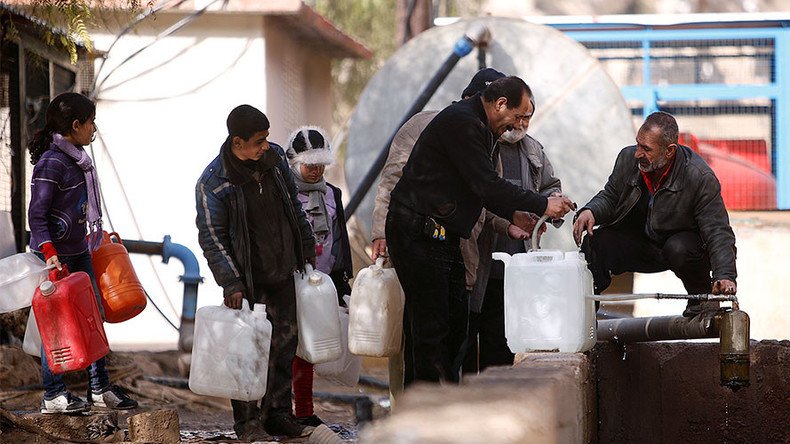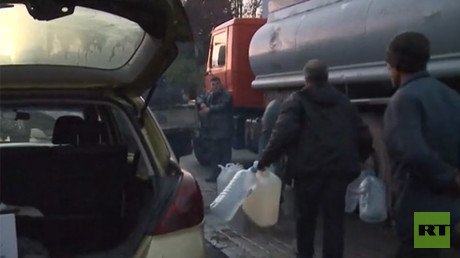‘WHO, Syrian people grateful to Russians’ – World Health Organization

The World Health Organization (WHO) condemns the use of water as a weapon of war, its representative in Syria Elizabeth Hoff told RT. She also said the UN health agency and the Syrians are grateful to Russia for setting up a field hospital in Aleppo.
Despite a ceasefire deal brokered by Russia and Turkey, parts of Syria are witnessing heavy fighting between government forces and certain rebel groups.
READ MORE: Syrian authorities say preliminary agreement reached with rebels on Damascus water supply
Militants controlling a water station that supplies the Syrian capital have denied striking a deal with the government to alleviate the water crisis in Damascus contradicting an earlier claim made by a local governor. Over five million people in the city face a shortage of clean water.
Both sides in the conflict accuse the other of withholding supplies. Human rights groups have expressed grave concern over the situation.
Docs say ppl using chlorine tablets to treat water for drinking does more harm, ppl say there's no alternative. #DamascuWaterCrisis#Syriapic.twitter.com/TVuVbgIXnt
— Lizzie Phelan (@LizziePhelan) January 11, 2017
“This is a very serious situation that we’re facing now in Damascus. The WHO has clearly condemned that water is being used as a weapon of war. Water is crucial for civilian life and should be protected by all parties to the conflict. We have issued several statements to this effect,” Elizabeth Hoff told RT.
It's hard to resolve the crisis when some parties of the Syrian conflict are “not respecting international humanitarian law and the Geneva Conventions,” she said, adding that it refers not only to water.
“There have also been repeated attacks on health care facilities when the people in Syria most need health services during the crisis,” Hoff said.
The WHO representative previously worked in Aleppo and explained what it was like there to RT.
“We have also seen that in the Aleppo governorate – that water has been also used as a weapon of war,” she said. “And there have been several attacks on the health facilities. Today only five of the 11 public hospitals are functioning.”
“The WHO, same as the Syrian people – we’re very grateful to the Russians, the EMERCOM gave a hospital to be used in the Jibreen [refugee] camp. The hospital provided by the Russian people has provided several hundred consultations and has been given by the Russian people to the Syrian people for the use by the central health authorities in Aleppo.”
Commenting on whether there could be more international cooperation to help those affected by the conflict, Hoff said the WHO and the International Support Group for Syria would try to get access to all the besieged and hard to reach areas in Syria.
“Both the Americans and the Russians have been there in the dialogue with the help of Staffan de Mistura and Jan Egeland. I think it is very important that they keep these dialogues going to try to make sure that we have access to the people in need. The WHO together with the UN is concerned about the humanitarian situation. We would like to have access to this area to make sure that food, water, and health services are reaching all the people in Syria.”
The statements, views and opinions expressed in this column are solely those of the author and do not necessarily represent those of RT.













